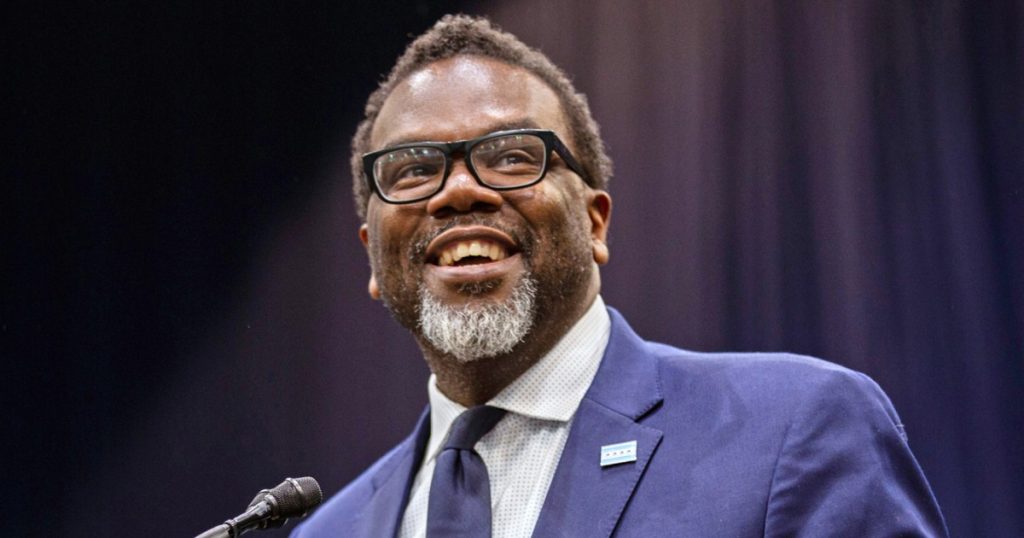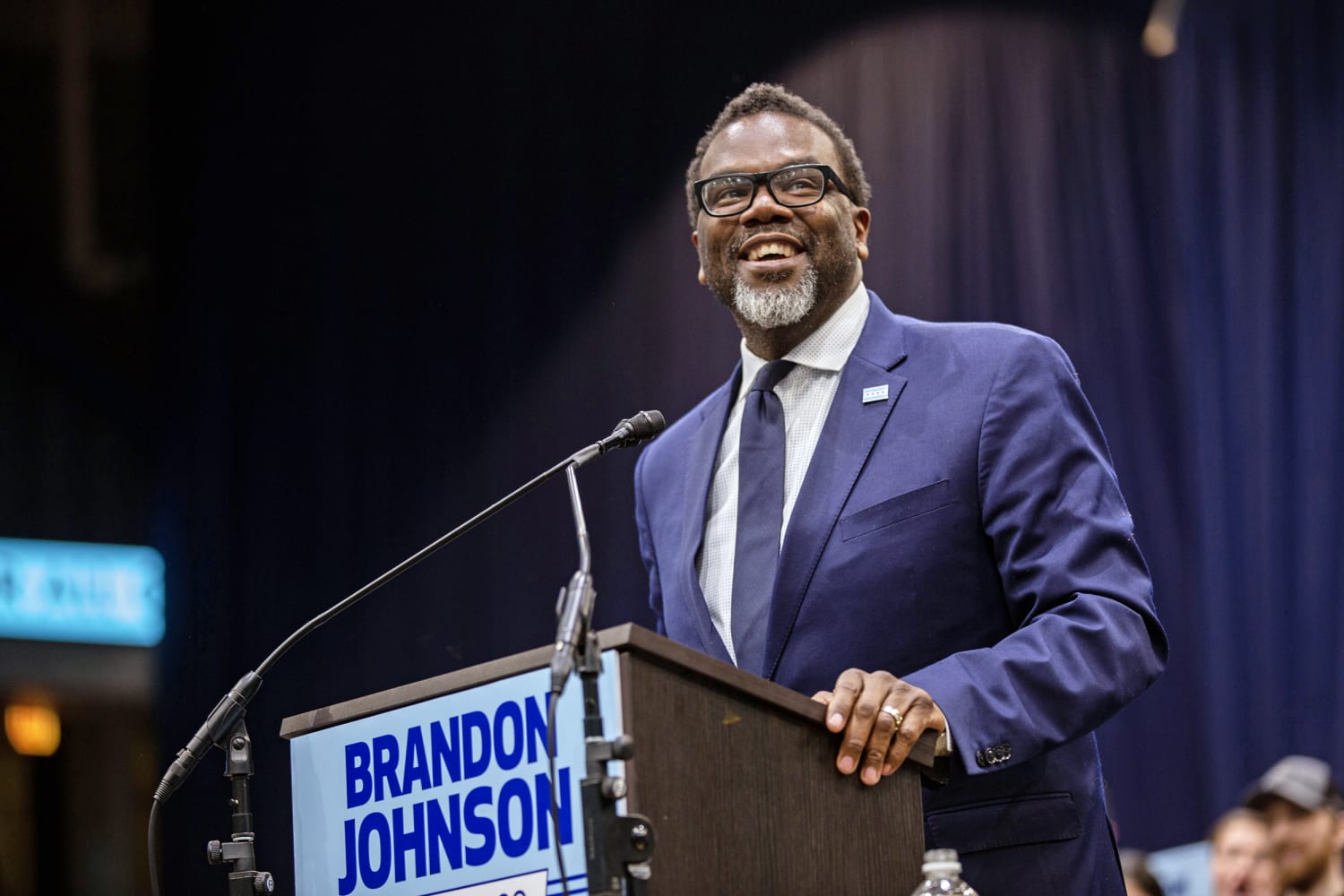

Brandon Johnson will be the next mayor of Chicago, NBC News projected Tuesday, marking a stunning turn for a staunch progressive and former teacher whose campaign leaned into messages of racial and economic disparities and who overcame blowback over past comments about decreasing police funding.
Johnson defeated the well-financed, tough-on-crime moderate Paul Vallas, a former CEO of the Chicago Public Schools who promised to immediately bulk up the Chicago police ranks to curb a crisis of gun violence.
Vallas told his supporters Tuesday night that he called Johnson and “told him I absolutely expect him to be the next mayor.”
The victory caps a meteoric rise for Johnson, 46, a Cook County commissioner, an activist and a member of the Chicago Teachers Union, who in the first round of the mayoral race, held Feb. 28, had been polling in fifth place before he finished second, behind Vallas.
In his victory speech, Johnson immediately gave a nod to the more than 270,000 people who did not support him.
“To the Chicagoans who did not vote for me,” Johnson said. “I care about you, I value you and I want to hear from you. I want to work with you. And I’ll be the mayor for you too.”
Johnson ran on a platform of taxing the wealthy to boost citywide services and investing in neighborhoods and schools across the city. He walked back past comments about slashing funding to police departments, saying that he wanted to bolster the ranks of detectives but that he also wanted to invest in mental health response services.
In his remarks Tuesday night, Johnson leaned heavily into new beginnings, acknowledging his win came on the same day of the 55th anniversary of Martin Luther King Jr.’s assassination, saying it served as symbolism for a new Chicago.
“Today, we did not just acknowledge the assassination of a dreamer,” he said. “Today the dream is alive, so today we celebrate the revival and the resurrection of the city of Chicago.”
“Let’s take this bold progressive movement around these United States of America. Chicago, we can show the country, we can show the world what’s possible when we stand on our values,” he added. “We don’t have to choose between toughness and compassion, between the care of our neighbors and keeping our people safe. If tonight is proof of anything, it is proof that those old false choices do not serve this city longer.”
Johnson won despite being vastly outspent on television. Vallas and supporting groups poured in about twice as much money on TV, blanketing the airwaves with negative ads, including pounding away at Johnson’s past stances on defunding the police. Johnson once called defunding the police “an actual political goal” but has since said he would not slash funding.
Vallas’ TV spending, combined with outside money supporting him, totaled more than $8 million from March 1 to April 3, compared with Johnson’s $4.2 million in spending in that same period, according to AdImpact, an advertising analytics firm.
For Vallas, 69, it adds another loss to a list of failed attempts for public office, among them campaigns for governor, lieutenant governor and mayor just four years ago, when he finished ninth.
Vallas’ disciplined message on crime propelled him to the top of the vote-getters in the February vote, which eliminated Mayor Lori Lightfoot from re-election contention. Lightfoot’s candidacy became a referendum on crime — murders in 2021 spiked to the most on record in 25 years, prompting her to become the first Chicago mayor to lose re-election in 40 years.
Ultimately, however, it was the organizational strength of powerful city unions that buoyed Johnson. They included the Chicago Teachers Union and the Service Employees International Union, which has a permeating presence in the city. The teachers union also spent millions of dollars on Johnson’s candidacy, leading to criticism that he would be beholden to it.
“The conversation that we’re having right now is about ‘What do safe American cities look like now in this country?’” Johnson said in a recent interview. “What they look like is that they have fully funded neighborhood schools, good paying jobs and affordable housing, reliable and safe public transportation.”
“This race is about doing what works,” he added. “And what works is that we invest in people. It’s data-proven that the greatest predictor of a safe community is a community that is fully loved, supported and invested in.”

 Latest Breaking News Online News Portal
Latest Breaking News Online News Portal




